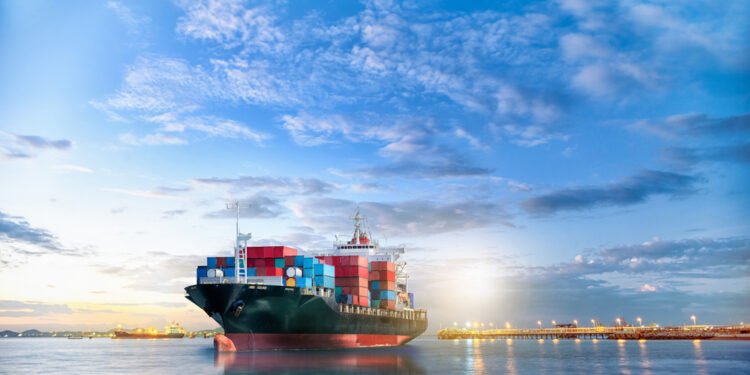The 103rd session of the IMO’s Maritime Safety Committee (MSC 103) took place virtually on 5-14 May. The adoption of an MSC resolution to prioritize COVID-19 vaccination of seafarers and the finalization of the regulatory scoping exercise for autonomous ships were the key highlights of this year’s meeting.
Key points
DNV provided a recap of the meeting highlights:
- Adoption of an MSC resolution on recommended actions to prioritize the COVID-19 vaccination of seafarers
- Finalization of the regulatory scoping exercise for autonomous ships
- Agreement on the development of a new IMO instrument for autonomous ships as the most appropriate way forward
- Approval of guidelines for fishing vessels and pleasure yachts operating in polar waters
- Approval of amendments to the guidelines for the maintenance and inspections of fixed CO2 fire-extinguishing systems
-Maritime Autonomous Surface Ships (MASS)
MSC 103 finalized a review of the existing regulatory framework, which generally assumes manning and human intervention, to determine how these regulations would apply to ships with varying degrees of autonomy. It was agreed that a new goal-based IMO instrument would be the best way forward to introduce MASS into the regulatory framework.
[smlsubform prepend=”GET THE SAFETY4SEA IN YOUR INBOX!” showname=false emailtxt=”” emailholder=”Enter your email address” showsubmit=true submittxt=”Submit” jsthanks=false thankyou=”Thank you for subscribing to our mailing list”]
The new instrument may be mandated through SOLAS and/or other conventions or be limited to providing interim guidance on MASS operations at an early stage. The overall goal is that MASS should be as safe as conventional ships.
The regulatory scoping exercise identified many common challenges for MASS operations across several existing IMO instruments, for example, the need to clarify the role and responsibility of the “master” for circumstances where shore personnel might control the ship, or the functional requirements of a remote control station. MSC 103 agreed that addressing these challenges, as well as achieving a common understanding of MASS terminology, should be high priority in connection with the development of a new instrument.
Member States were invited to submit new output proposals for how to address MASS in the IMO regulatory framework to MSC 104 in October 2021, recognizing that future MASS-related regulatory work may require liaison with the IMO’s Facilitation and Legal Committees.
-COVID-19 vaccination of seafarers and crew change crisis
A resolution on “Recommended action to prioritize Covid-19 vaccination of seafarers” was adopted, recommending that member states prioritize seafarers in their national COVID-19 vaccination programmes, consider exempting seafarers from any national policies requiring proof of vaccination during travels, and develop plans, where feasible, to provide the necessary infrastructure and facilities to support the vaccination of seafarers.
In addition, MSC 103 endorsed a revision of the industry-developed “Recommended framework of protocols for ensuring safe ship crew changes and travel during the COVID-19 pandemic”, taking into account the global roll-out of vaccines and their role in facilitating ships’ crew changes and the efficient movement of world trade.
Meanwhile, a new module, agreed by MSC 102, is available in the IMO’s online information database GISIS to make information about both national focal points of contact and ports that facilitate crew changes available to shipping companies.
Member states were encouraged to use the module to provide relevant information on facilities for crew changes and repatriation of seafarers,
..DNV said.
-Domestic ferry safety
While recognizing that domestic operations are outside the scope of the IMO’s responsibilities, MSC 103 considered a draft framework for nonmandatory model regulations, implementation guidelines, and training programmes and agreed to further develop these at MSC 104 in October 2021.
-Measures to enhance maritime security
Cyber risk management for ships and ports MSC 103 agreed to disseminate the fourth version of the industry developed “Guidelines on cyber security onboard ships” as an MSC circular. MSC 103 also agreed to update the “Guidelines on maritime cyber risk management” (MSC-FAL.1/Circ.3) with a reference to the consolidated IACS “Recommendation on cyber resilience” (Recommendation 166), subject to concurrent decision by the IMO’s Facilitation Committee.
-Human element, training and watchkeeping
The COVID-19 pandemic has created problems in terms of the renewal of various documents, such as certificates of proficiency and health certificates, and of the fact that many seafarers are having difficulty maintaining their certificates because the necessary courses are not available. The second problem is now becoming acute.
As such, MSC 103 endorsed the establishment of a correspondence group to identify in detail certification and training issues related to the COVID-19 pandemic, with a view to develop guidance for harmonizing, to the extent possible, measures and solutions, as well as to consider the possible adverse effects of these measures when normality returns.
In addition, MSC 103 agreed to propose a specific strategic direction on the human element in the Strategic Plan for the Organization, particularly in the context of the global crisis stemming from the COVID-19 pandemic and the need to protect the seafarers. The proposal will be sent to the IMO Council for consideration.































































